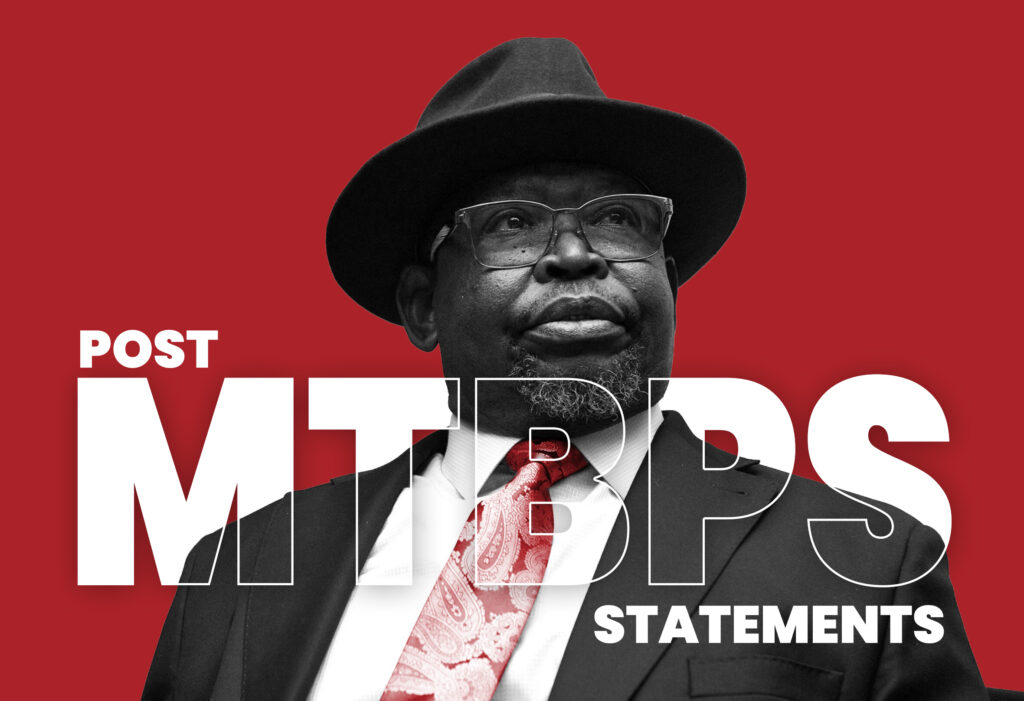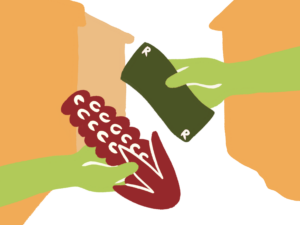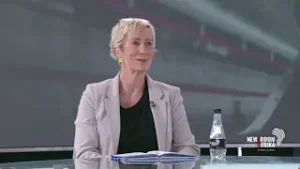
The Medium Term Budget Policy Statement is a roadmap of the fiscal and allocations direction the government is planning on taking in the annual budget speech in February. Evident from the MTBPS is that the government has no intention of using fiscal policy tool to stimulate economic growth. This was made clear by the extension of the SRD grant by only one year to the value of R1.7 billion, not big enough to have an impact on demand creation. The whole statement echoed contractionary sentiments. At the same time the minister stated that in the next 2 years the South African economy is only expected to grow peaking at 1.6% GDP growth rates. The last year South Africa recorded such low growth rates was 2018. Even at the height of its economic growth rates the South African economy has failed to curb inequality and contain unemployment. This means a thorough review of the country’s macroeconomic policies and growth strategies is needed. Figure 1 below shows the country’s longitudinal growth analysis where much of the growth has come from the supply side. This means to get the country growing at higher levels both supply side and demand side growth strategies are needed.
South Africa has always leaned on the conservative side on when using its Fiscal Policy tools as part of an economic growth strategy. Fiscal policy tools include not only government expenditure decisions but tax rates determination as well as the direct influence of the government in the economy. For decades South Africa has taken the advice from the IMF and World Bank to play a regulatory role in the economy by creating a conducive environment for business and not become an active participant in the economy as happens in most developed countries. The child that has been birthed from this is an unemployment rate of 42.4% unemployment that continues to grow. The South African tax architecture remains lax on the wealthy, corporate taxes as well as transaction costs. With only 20% of the population currently contributing to income tax the country’s tax structure is one that needs reviewing urgently.
While the scope of fiscal policy tools is wide, the Social Policy Initiative calls for the direct intervention of government in the economy through a stimulus package to the value of R547,8 billion. This pack will be disbursed through the implementation of a Universal Basic Income (UBI) over three years. It is large enough to quick start the economy and act as a catalytic policy while other growth policies are developed.
A UBI in South Africa needs to be accompanied by other policies to achieve the desired impact of economic growth and poverty alleviation. Such policies include an expansionary macroeconomic policy, which is at odds with the MTBPS pronouncements by the Minster of Finance. Proper land redistribution policies would also be needed in that the most destitute in South Africa do not own any land and are reliant on supermarkets to meet their basic food needs. This makes the poorest extremely poor and vulnerable in South Africa compared to other African countries and developing nations where the poor have access to land and use it for subsistence farming to meet their daily food needs.
While not a silver bullet, the implementation of a UBI can address a wide range of challenges in the country while playing a critical redistributive role. South Africa can choose to continue the current trajectory that has resulted in staggering unemployment and poverty levels with a litany of consequences for social cohesion in the country, or the country can utilise the window of opportunity with the coming elections to really put pressure on the government to course correct its fiscal policy narrative. This requires a strong political will and an active citizenry pressure on the government both of which a very lax.











